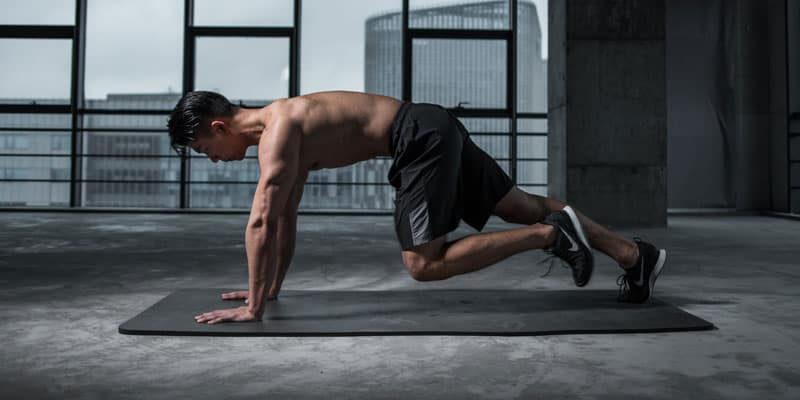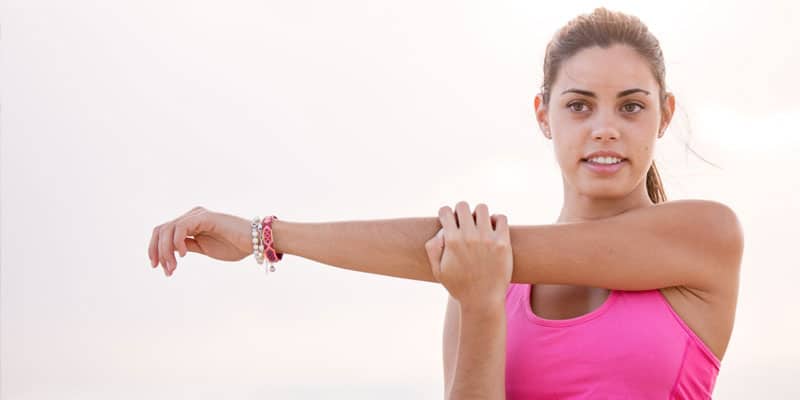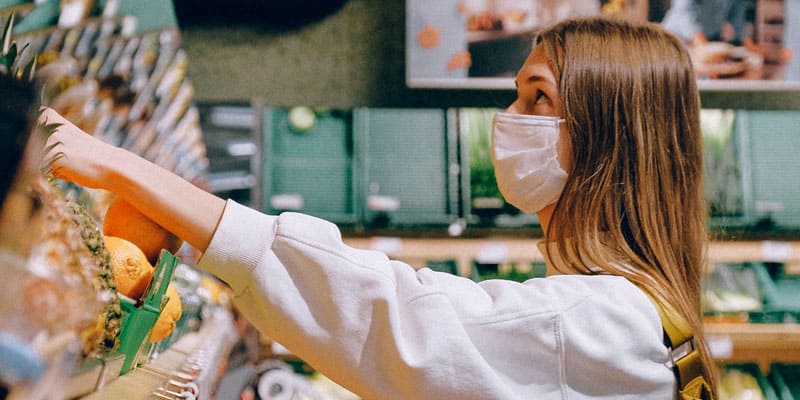COVID-19 – Is Sleeping More And Exercising Less Good?
Hey Everybody. Doc Parsley here. I Wanted to talk a little bit about what we can do as active participants in this societal experiment we’re calling The COVID Pandemic. Of course, there’s a lot of doom and gloom and a lot of fear. We’ll talk about that in a minute.
I wanted to firstly address an article that I saw done by a research company, Evidation [link to article here]. They were talking about how since the beginning of this epidemic, they’ve been tracking people’s data from Garmins and Fitbits and similar wearable tracking devices. And they’re collecting it centrally and they’re talking about how people are behaving across the entire country.
One bit of really good news is that people are sleeping a lot more, which is key. Of the four pillars of health, SLEEP is the number one thing for improving your immune system, also improving your mood.
But according to Evidation, the downside is that apparently people are far less active. So we’ve had anywhere from a 10 to 25% increase in sleepdepending on what state you’re from, but about almost a 40% decrease in activity.
A lot of people are saying, “Well, I can’t go to the gym. I can’t do the things that I ordinarily do.” Obviously, in places like New York, people aren’t walking everywhere like they ordinarily do. So there’s a lot baked into the cake there. But, the larger point is that activity – some activity – ANY activity – is critically important. Especially right now.
Exercise vs. Activity
Activity does not have to be exercise proper. What you do doesn’t have to be qualified as exercise. It just needs to be activity. So that can be cleaning your house, that can be washing your car, that can be mowing your lawn, whatever. Even decluttering the attic… Just being active, doing things around whatever area you’re staying in. Activity can be walking up and down stairs. It can be walking to and from the store.
Just the physiological movement of your body causes a change in lots of your stress hormones and those stress hormone changes lead to cardiovascular changes, neurocognitive changes like how fast your heart’s beating. Activity also impacts how much your blood vessels are dilated and what your blood pressure is.
Washing your car or something to that degree isn’t going to get your heart rate going – I’d guess the average car wash would get your heart rate to probably around a 100, 110… Not quite “exercise” but it’s activity and it’s increasing blood flow and it’s decreasing the effects of blood glucose. Higher blood glucose levels can have a negative impact on your stress hormones. It makes you more prone to stress and more prone to disease.
Speaking of Stress…
In light of the data from the new study, stress is probably the most important factor to consider here. When we are worried, we have more stress hormones. When we have more stress hormones, we don’t sleep as well. So even if as the study claims, we’re sleeping 10% to 20% more – If the quality of our sleep is 10% to 20% lower than normal, that puts us at a net zero.
I think that most people are experiencing some level of stress right now, whether they recognize it or not. Stress doesn’t have to look like fear. Stress is anything that’s perceived from the body as an environmental concern that has to be dealt with. Stress can be general concern, and it can just be extra work – It can be any number of different things.
How To Best Prepare Yourself
In my opinion, what you want to do to best mitigate stress prepare yourself for the inevitability of you being exposed to this virus. I’d say over the course of six months definitely to a year, every person on this planet is going to be exposed to this virus.
We know 85% of us will have mild to no symptoms whatsoever.Depending on your age, it can be far greater than 85%, it could be 95% to 99% of people who won’t have any significant symptoms or disease. And there’s good reason to think that, after we’re exposed, we’ll develop some reasonable immunity.
So the fact that everybody’s going to be exposed to it means that at some point your immune system is going to have to deal with it. The healthier your immune system is, the less the virus will impact you, and the less likely you are to give a viral infection to somebody else.
Clarifying How The Virus Works
First, the virus isn’t alive. It’s just genetic information inside of a protein shell. It gets into your bloodstream and it attaches itself to cells. It puts genetic information into that cell and then it changes what that cell does. Instead of that cell being a liver cell or a muscle cell, the virus gets into that cell, stops that cell from performing its ordinary functions, and gets the cell to instead make a whole bunch of the virus. When enough of this virus gets made, it causes the cell to rupture and push the virus into your bloodstream where it attacks other cells or attaches to other cells to repeat the process.
Eventually, if you’re healthy, your immune system fights back and beats it. But the problem with this being a novel virus is you don’t have acquired immunity, meaning you haven’t previously developed virus-specific antibodies (which is a way for your immune system to tag the virus.)
Once a virus gets tagged, that’s like your body putting a little beacon on it so your whole immune system knows that if it sees it, it should kill and get rid of it.
The amount of time it takes your body to identify, mark, and respond to a threat equals the length of time you have the infection, which is also the length of time you can possibly spread it.
So if you’re coughing or sneezing, getting spit and phlegm on your hands, touching things – and the more virus you have in you, the more likely you are to spread it to somebody else. If it takes you one week, two weeks, three weeks to tag and clear the virus, that represents the amount of time you could possibly infect somebody else.
How You Can Protect Yourself
To be a good citizen, not only for your own health but for the benefit of your community, your primary goal should be preventing yourself from needing serious medical attention. And, of course, if/when you’re exposed, you want to prevent yourself from giving the virus to somebody else.
Activity plays a part in minimizing the impact of the virus. You can’t just throw the activity out because there are limitations to what type of activity you can do. The human body is hundreds of thousands of years old and we’ve been active long before we had gyms and Orange Theory, so there is lots of stuff that you can do:
Walking, going on bike rides, finding at-home workouts on YouTube – simple things. Playing with your kids, doing projects at home that keep you focused and engaged – That type of activity is going to be very important in optimizing your stress and optimizing your life.
A Word Of Caution
Be careful with your media consumption. In fact, I recommend limiting yourself to 10-15 minutes a day. The more you read about coronavirus, and the more media you consume that focuses on how dangerous the world is, how many people are dying, etc, etc – That will add unnecessary stress to your life and deplete your immune function.
Being active gets your mind off the “what ifs” and into the present moment. Being active is like a form of meditation. If you’re doing something positive that captures your attention, you’re operating in “the now,” which helps to decrease stress hormones. The activity itself decreases stress hormones.
By contrast, intense exercise can actually increase stress hormones. If intense training has been part of your activity rituals for some time, it can of course still be beneficial. But now is not the time to begin pushing your body well beyond what you’re typically used to.
As a final reminder, beyond activity and exercise, now is the time for you to take the time and space for quality sleep. If you’ve yet to master getting 8 hours of sleep consistently, NOW is the time. Nothing will break you faster than poor sleep, and nothing will boost your mood and strengthen your immune system faster than sleeping well.
Let’s do what we can to help each other get through this. Please do your best to focus on the four pillars of health and be safe out there. Be active, eat well, control your stress, and SLEEP!



